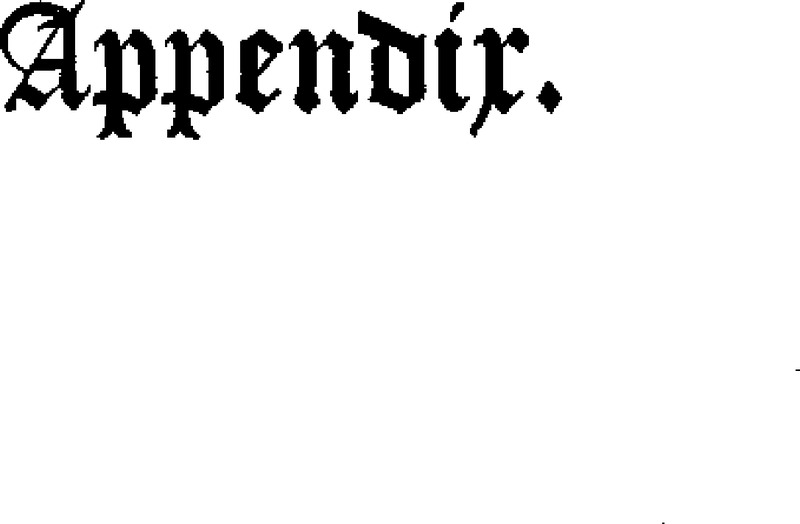No CrossRef data available.
Published online by Cambridge University Press: 25 March 2010

page note 202 * Dashed through.
page note 203 * A suit between the Bishops of Hereford and Saint Asaph, respecting ecclesiastical jurisdiction over a tract called Gordwr, on the borders of their respective dioceses. The affair had been settled, and the cause ordered to be withdrawn.
page note 203 † Peter de Langona instituted a suit in the Court of Rome against Bishops De Breton, Cantilupe, and others for having deprived him of a prebend in the cathedral, and a benefice in the diocese of Hereford. It was continued against Cantilupe's executors, Richard de Swinfield and William de Montfort, and lasted nearly sixteen years. At length judgment was given against them on July 26, 1290.
page note 203 ‡ Cursius de Sancto Geminiano, a proctor in the court acting with Pudlesdone.
page note 204 * This statement is quite a counterpart to that given in Dors. |16, and accounts for the expenditure of the money placed in the hands of Pudlesdone, including the mark that he gave to John, the messenger, on his return to England.
page note 205 * The reckoning does not appear correct. It should have been fifteen marks and a half.
page note 205 † When the executors of Cantilupe lost their cause in the matter of De Langona, and judgment was given against them, Cursius, one of their lawyers, made an appeal which proved fruitless, and appears to have been censured as such by those who retained him. Hence the epithets of vain and foolish applied to it in this statement. His fee for this was 3l. = 45l. He made a demand of it, but my lord paid it as a gratuity only, because he had disapproved of the measure. The copy of the sentence and appeal, which cost 20s. = 15l. is entered in Swinfield's register, and fills several folios. These sums furnish some notion of expenses incurred at the Court.
page note 205 ‡ Pudlesdone's first proxy, empowering him to act conjointly with Cursius de Sancto Geminiano, is dated 17 Oct. 1286, so that he had been acting as proctor for rather more than four years.—Reg. Swinf. f. 20 b.
page note 207 * In the original velle is repeated, as it stands, twice in the same sentence.
page note 208 * This reason, together with the time that he had taken to deliberate, was apparently to colour the Bishop's having yielded, when he could not have refused, not only to what was dishonourable in Pudlesdone, but annoying to himself.
page note 209 * De la Dane and De Chiggewell seem by an alias to signify the same person. Hamond de Chikewell was six times Mayor of London during the reign of Edward II. For an account of him see The French Chronicle of London, printed for the Camden Society, 1844, pp. 40, 41, note.
page note 213 * There was a female recluse in the church of St. Giles, in the suburb of Hereford, A.D. 1321.—Reg. Orlton, f. 55 b.
page note 217 * Hugh Foliot died in 1234, and Ralph de Meydenestone resigned in 1239.—Duncumb, i. 460.
page note 224 * Album Monasterium, Whitchurch, co. Salop.
page note 224 † Builth in co. Brecon, in which neighbourhood Llywelyn was slain.
page note 227 * MS. Rawlinson, habuerimus. This MS. contains copies of several instruments relating to the church about this period, and grants confirmatory of other obits kept at Hereford.
page note 230 * This is the first instance that the editor has observed, in the registers of Cantilupe, Swinfield, and Orleton, of the application of this word to any episcopal dwelling; though the mere remains of the manor-houses of the see are at present dignified with the appellation.
page note 233 * Interlined.
page note 233 † Qu. etiam?
page note 234 * The sense of the sentence appears disturbed by the expression quanquam, qu. nonnunquam?
page note 235 * A word obliterated at the top of f. xviij. b.
page note 238 * Interlined.
page note 238 † Inserted.
page note 239 * Inserted.
page note 240 * Interlined.
page note 240 † Inserted.